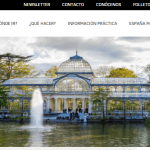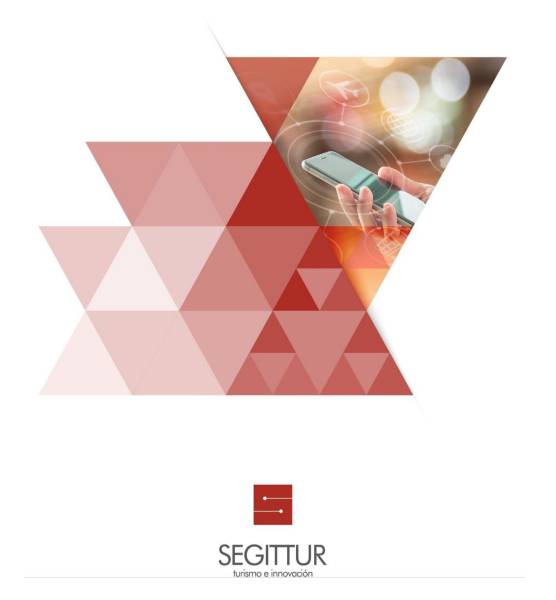The Secretary of State for Tourism, through SEGITTUR, is working to create a Smart Destinations Platform, a project through which Spain aims to place itself at the forefront of tourism countries by using digitalization to improve the tourism experience and offer integrated services of value at the destination.
The aim of the platform will be to integrate, collate and combine public and private data to build more competitive intelligence on the ecosystems of Spanish destinations, while also activating continuous innovation, interconnecting and meeting the needs of all agents present along the tourism value chain: tourists, destinations and companies.
Thus, the digitalization of tourism services, data and artificial intelligence have become levers to accelerate the Spanish tourism model and, to succeed, 130 million euros will be allocated from the Recovery, Transformation and Resilience Plan.
Smart Destinations Platform
This tool will generate a digital ecosystem at the destinations that will optimise costs in technological digital services and deployment times, enabling the use of metrics and interconnecting and meeting the new needs of all industry players.
Meanwhile, travellers will be able to interact digitally with the destination and local companies and maintain loyalty with what it has to offer before, during and after the trip through various channels, including social media, websites and apps.
From the destination’s standpoint, the platform responds to the main challenges they are facing in their ongoing transformation process. From market promotion, tourist information (cultural attractions and things to do), interaction with tourists during their stay, the impact of public services (mobility, waste, safety, types of services provided and timetables, health information, etc.), through to an analysis of the physical and digital behaviour of tourists by tourist season, by market segment or by applying predictive intelligence.
For companies, the platform accelerates their business digitalization process, both from a promotional standpoint and when it comes to interacting with tourists, while also making company teams more technically ready. It also provides useful tools for generating better value propositions and having them published in the best promotional channels operated by the destination. On top of this we have business intelligence, enabling companies to see how they are faring compared with similar businesses at the same destination and at other competing destinations.
The initiative aims to promote technological sovereignty and make Spanish tourism more competitive, based on profitability, sector cohesion and the generation of knowledge to address the challenge of the digital transformation of Spanish tourism in social, economic and environmental terms.
Promoter
Deployment of the platform began in 2021, and several rounds of dialogue have been held with the tourism and technology sector, allowing all sides to define objectives, characterization, scopes and specifications. In this context, the need arose to create a central promoter, with both public and private representation, to play a key role in the design and development of the platform.
The Promoter works to ensure coordination and cooperation with the business sector and city/destination networks so as to continue with the ongoing dialogue that has come to define the platform’s approach and scope.
It is made up of representatives from the various cities: DTI Network, RECI and FEMP; representatives of the tourism and technology business sectors: Tourism Council CEOE, Adigital, Ametic, Conetic y Digitales, UNE, Benidorm City Council and Invat_tur.
Its duties include that of ensuring that the design and implementation of the Smart Destinations Platform is aligned with the needs of the destinations and their particular socio-economic ecosystems. It also keeps close track of the various actions being carried out and reports on such all activities: studies into the state of the art, pilots and use cases to fully unlock the basic and specialised capabilities of the platform, thus enabling interoperability with other public and private platforms, improving the operational capacity of the sector and generating new scenarios for data governance and exploitation.
INVAT_TUR headquarters of the Intelligent Destination Platform
The agreement signed between the Ministry of Industry, Trade and Tourism and the Generalitat Valenciana (regional government of Valencia) specifies the activities of the platform to be based in Benidorm, specifically at the headquarters of the Valencian Institute of Tourism Technologies (INVAT-TUR), thus fulfilling the Government’s commitment to decentralising the location of newly created public bodies.
The headquarters will function, in the first instance, as a unified operations centre from which to steer and coordinate all its activities with the other participating destinations in the DTI Network.
Secondly, this unified operations centre will work to define the data strategies and interoperability of systems used to feed the Tourism Data Space envisioned in the Tourism Sector Modernisation and Competitiveness Plan, thus helping to create secure and federated data infrastructure systems capable of driving the continuous innovation of the tourism sector.
Last but not least, this operations centre will act as the managing body for two core aspects of the future of Spanish tourism: support for the operation of the tourism data space; strategic and operational support for the Country Platform; technical support for the digital transformation of destinations and their ecosystems.







